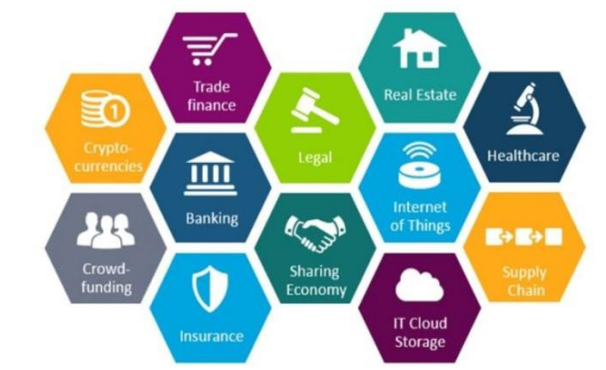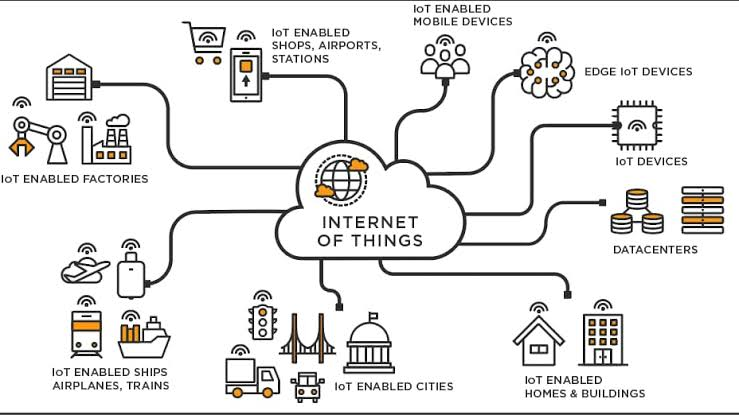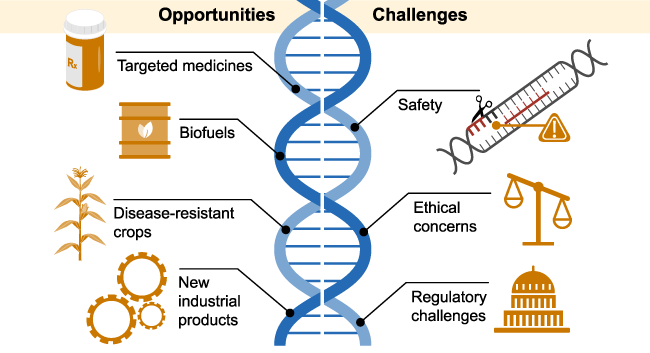PERSPECTIVE: Disruptive & Futuristic Technologies

Disclaimer: Copyright infringement not intended.
Context
- Disruptive technology is an innovation that significantly alters the way that consumers, industries, or businesses operate.
Details:
- It displaces a well-established product or technology, creating a new industry or market.
- New technology can either be sustaining or disruptive.
- While sustaining technology depends on the incremental improvements in the already existing technology, disruptive technology is a completely new one.
INTRODUCTION:
- In the ever-evolving landscape of technological advancements, transformative innovations play a pivotal role in reshaping industries and societal norms. These groundbreaking technologies bring about significant changes, introducing new approaches, products, or services that challenge established norms and pave the way for a revolution.
Disruptive Technologies: Catalysts of Change:
- Disruptive technologies, as the name suggests, are the driving force behind transformative changes. These innovations have the power to replace existing solutions, creating a profound impact on industries, markets, and societal norms.
- By offering improved efficiency, lower costs, or novel features, disruptive technologies challenge traditional business models and usher in a new era of possibilities.
Key Characteristics of Disruptive Technologies:
- Efficiency Enhancement: Disruptive technologies often bring about improvements in efficiency, streamlining processes and operations.
- Cost Reduction: One of the hallmark features is the ability to lower costs, making these innovations economically attractive and competitive.
- Innovation Challenge: By introducing novel features, disruptive technologies push the boundaries of what is considered standard, encouraging constant innovation.
- Sector Reshaping: The impact of disruptive technologies goes beyond individual businesses, reshaping entire sectors and forcing stakeholders to adapt to the changing landscape.
Futuristic Technologies:
- Futuristic technologies represent the cutting edge of innovation, often in conceptual or developmental stages. These advanced innovations hold the potential to significantly impact various aspects of human life and society in the future.

Key Attributes of Futuristic Technologies:
- Innovation in Progress: Futuristic technologies are at the forefront of ongoing innovation, with constant development and refinement.
- Anticipated Impact: These technologies are envisioned to bring about substantial changes, addressing current challenges and providing solutions for the future.
- Diverse Applications: From healthcare to transportation, futuristic technologies have the potential to impact various sectors, promising advancements in different fields.
Interplay Between Disruptive and Futuristic Technologies:
- The terms disruptive and futuristic technologies are often used interchangeably, highlighting the inherent disruptive nature of innovations poised to shape the future. The continuous evolution of technology ensures that what is considered futuristic today may become disruptive tomorrow, challenging the status quo and propelling us towards a dynamic and ever-changing future.
Examples:
- Smartphones: Disrupted traditional mobile phones and various consumer electronics by integrating multiple functions into a single device.
- Streaming Services: Disrupted traditional cable and satellite TV by offering on-demand, subscription-based content delivery over the internet.
- Electric Vehicles: Disrupting the automotive industry by challenging the dominance of internal combustion engines with more sustainable electric alternatives.
- 3D Printing: Transforming manufacturing processes by enabling the production of customized, on-demand items with reduced waste.
- Blockchain and Cryptocurrencies: Disrupting traditional financial systems by introducing decentralized and secure methods of digital transactions.
|
Applications of Disruptive and Futuristic Technologies:
Accelerated Technological Advancements
- Technologies like Artificial Intelligence (AI), Machine Learning, and Quantum Computing are driving rapid innovation across industries. The convergence of AI with fields like robotics is leading to powerful and versatile solutions.
Digital Transformation in Organizations
- Organizations are undergoing digital transformation using technologies to streamline operations, enhance customer experiences, and gain a competitive edge. Cloud computing, edge computing, and Internet of Things (IoT) play pivotal roles in this transformation.

Remote Work and Collaboration
- The COVID-19 pandemic has accelerated the adoption of remote work and virtual collaboration Essential technologies include remote communication, video conferencing, and digital collaboration solutions.
Health Tech and Biotechnology Advancements
- The healthcare industry is experiencing significant advancements in telemedicine, personalized medicine, genomics, and bioinformatics. The pandemic has increased focus on vaccine development, diagnostic tools, and data-driven healthcare solutions.

Renewable Energy and Sustainability
- Emphasis on sustainable technologies and renewable energy sources is growing to address environmental concerns. Advances in energy storage, smart grids, and electric transportation contribute to a more sustainable future.
Blockchain and Decentralized Finance (DeFi)
- Blockchain technology is evolving beyond cryptocurrencies. DeFi platforms are reshaping traditional finance by providing decentralized alternatives for banking, lending, and trading.
Space Exploration and Commercialization
- The space industry is experiencing a resurgence with increased interest from both public and private entities. Commercial space travel, satellite constellations, and lunar exploration projects are gaining momentum.
Challenges Related to Disruptive & Futuristic Technology:
Challenges for Developing Countries:
- Starting from a disadvantaged position, developing countries like India face hurdles such as low human capital, ineffective institutions, and a challenging business environment.
Trust and Ethical Questions:
- While disruptive technology itself isn't the issue, concerns related to privacy, ownership, and transparency pose ethical dilemmas. Addressing these issues is crucial to avoid potential problems.
Challenges in Adaptability:
- Disruptive innovations need time to prove themselves in complex market conditions. Adaptability to the market environment is crucial for their success, and penetration into the market takes a considerable amount of time.
Untested & Time-Consuming:
- New technologies are often untested and undergo refining during their early stages, with development extending over years. The gestation period for innovative ideas is significant before they can establish themselves in the market.
Redundancy of Prevalent Old Technology:
- Innovative ideas and business models disrupt existing ones, leading to fierce competition. Established businesses may take various measures to prevent being ousted from the market, posing a significant challenge for new entrants.
Cybersecurity Challenges:
- As technologies advance, the importance of robust cybersecurity measures increases. The growing frequency and sophistication of cyber threats emphasize the need for ongoing developments in cybersecurity technologies.
Global Collaboration and Competition:
- The development and deployment of disruptive technologies require global collaboration and competition. Countries and companies compete for leadership in key technological domains, leading to ongoing rivalries such as the one between the US and China.

Way Forward:
Creating an Enabling Environment for Disruptive Technologies:
- To harness the full potential of the next generation of technology and innovation, a policy framework should prioritize the development of an environment that fosters positive impacts on the economy, society, and the environment while addressing inequalities.
Embracing a Holistic Approach:
- Success in the realm of disruptive technologies cannot be achieved through technology alone. A whole-of-economy or most-of-society approach is crucial. Policymakers should consider local contexts and conditions to establish social, political, and economic ecosystems that not only generate jobs but also drive inclusive growth.
Promoting Research and Development (R&D) Sector:
- Encouraging the formation of product design centers is essential to tailor products to the Indian environment and consumers, fostering inclusive information and communication technology (ICT) infrastructure.
Government Support for Inclusive Growth:
- The government should play a pivotal role in providing support and incentives for distributed manufacturing in smaller towns. Additionally, the IT industry should focus on creating seamless platforms and marketplaces that connect consumer demands, product designers, and manufacturers.
International Cooperation for Standard Setting:
- As disruptive technologies like AI are still evolving globally, international cooperation is a work in progress. Governments need to collaborate on setting standards at the multilateral level to ensure a cohesive and effective approach to the development and implementation of these technologies
Conclusion
- The introduction of such technology brings substantial benefits to both consumers and businesses, creating a positive shift in entire industries. Innovative technology has the power to reshape industries in a favorable manner. Efficient utilization of this technology can unlock a myriad of innovative benefits for both consumers and industry producers.
CITATIONS:
https://sansadtv.nic.in/episode/perspective-disruptive-futuristic-technologies-29-november-2023
https://www.sciencedirect.com/science/article/pii/S0016328722001598
https://www.researchgate.net/publication/340165365_Perspectives_on_disruptive_technology_and_innovation_Exploring_conflicts_characteristics_in_emerging_economies
https://fastercapital.com/content/Technology--Embracing-Disruptive-Innovation-for-Future-Success.html
https://pubdocs.worldbank.org/en/108081526003752002/051118-disruptive-technology-seminar-Tilmes-Klaus.pdf
https://timesofindia.indiatimes.com/blogs/voices/future-of-work-with-new-age-disruptive-technologies/






